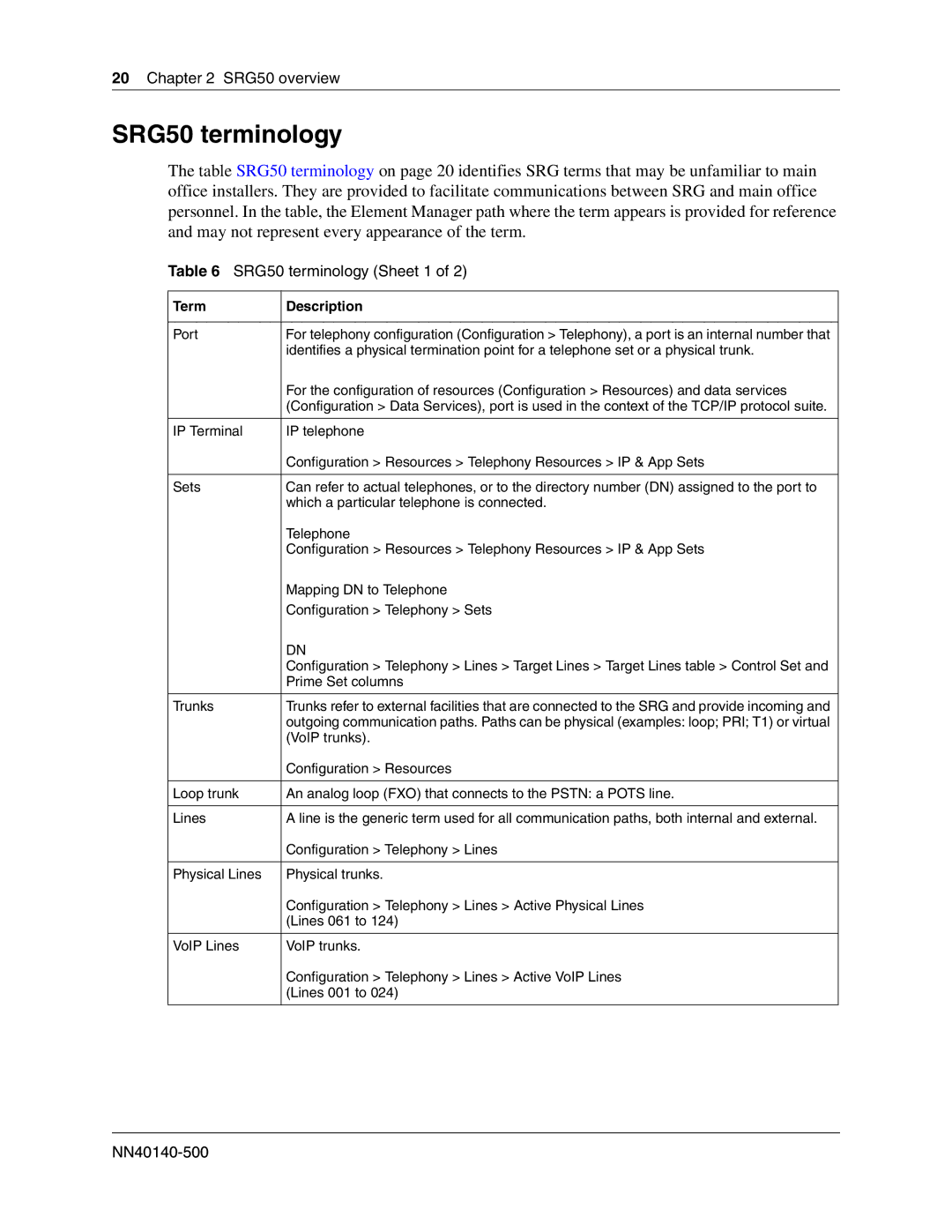
20Chapter 2 SRG50 overview
SRG50 terminology
The table SRG50 terminology on page 20 identifies SRG terms that may be unfamiliar to main office installers. They are provided to facilitate communications between SRG and main office personnel. In the table, the Element Manager path where the term appears is provided for reference and may not represent every appearance of the term.
Table 6 SRG50 terminology (Sheet 1 of 2)
Term | Description |
|
|
Port | For telephony configuration (Configuration > Telephony), a port is an internal number that |
| identifies a physical termination point for a telephone set or a physical trunk. |
| For the configuration of resources (Configuration > Resources) and data services |
| (Configuration > Data Services), port is used in the context of the TCP/IP protocol suite. |
|
|
IP Terminal | IP telephone |
| Configuration > Resources > Telephony Resources > IP & App Sets |
|
|
Sets | Can refer to actual telephones, or to the directory number (DN) assigned to the port to |
| which a particular telephone is connected. |
| Telephone |
| Configuration > Resources > Telephony Resources > IP & App Sets |
| Mapping DN to Telephone |
| Configuration > Telephony > Sets |
| DN |
| Configuration > Telephony > Lines > Target Lines > Target Lines table > Control Set and |
| Prime Set columns |
|
|
Trunks | Trunks refer to external facilities that are connected to the SRG and provide incoming and |
| outgoing communication paths. Paths can be physical (examples: loop; PRI; T1) or virtual |
| (VoIP trunks). |
| Configuration > Resources |
|
|
Loop trunk | An analog loop (FXO) that connects to the PSTN: a POTS line. |
|
|
Lines | A line is the generic term used for all communication paths, both internal and external. |
| Configuration > Telephony > Lines |
|
|
Physical Lines | Physical trunks. |
| Configuration > Telephony > Lines > Active Physical Lines |
| (Lines 061 to 124) |
|
|
VoIP Lines | VoIP trunks. |
| Configuration > Telephony > Lines > Active VoIP Lines |
| (Lines 001 to 024) |
|
|
